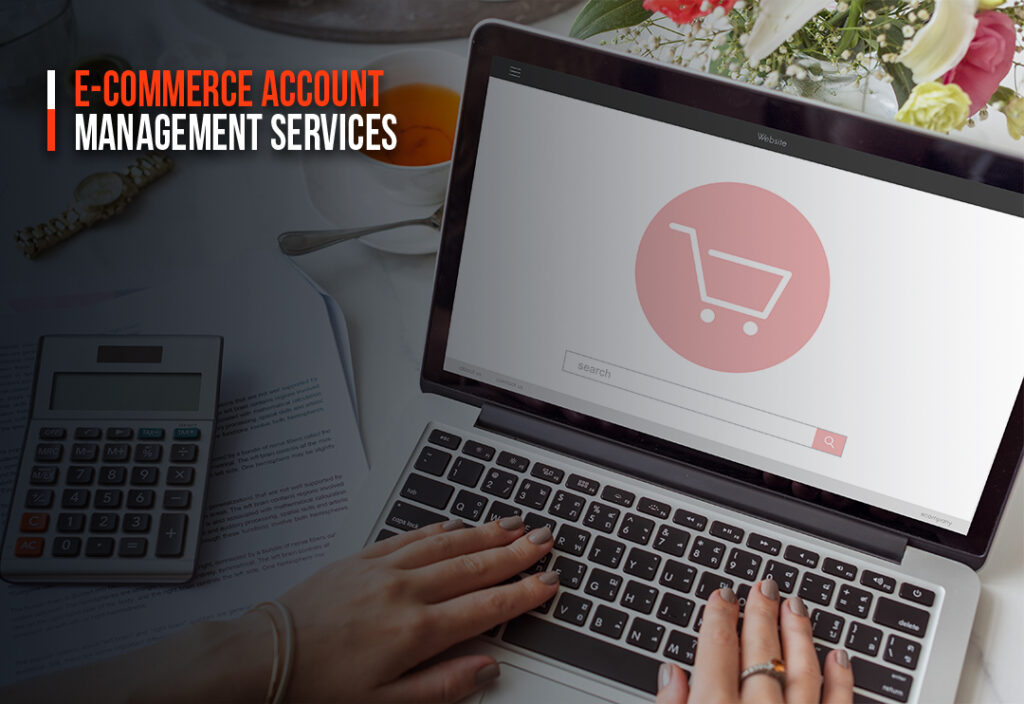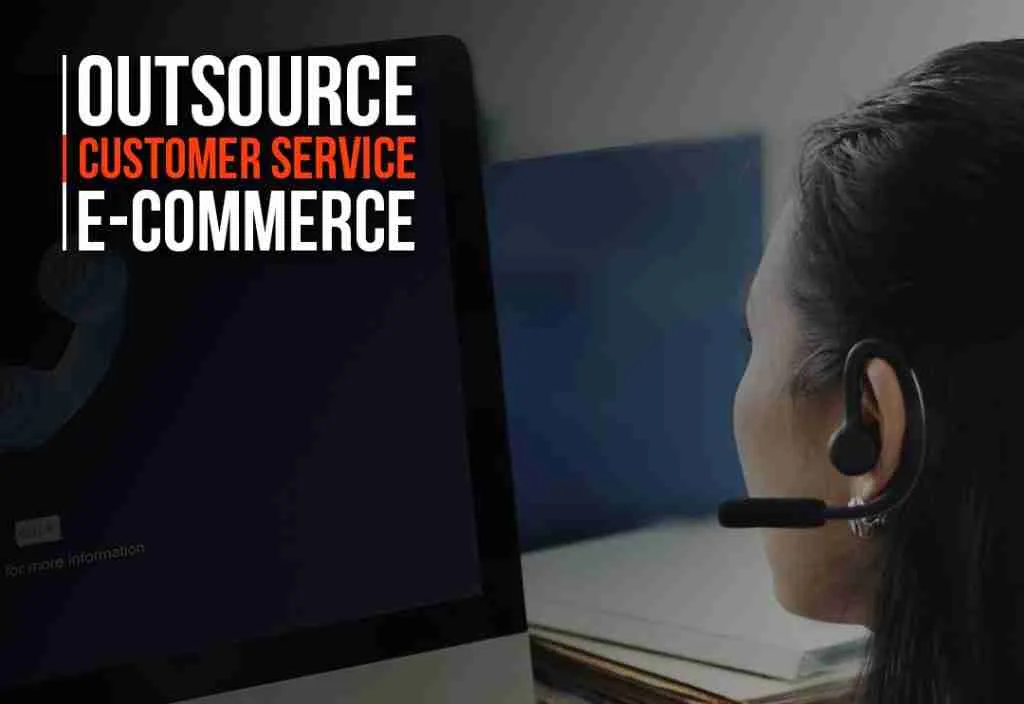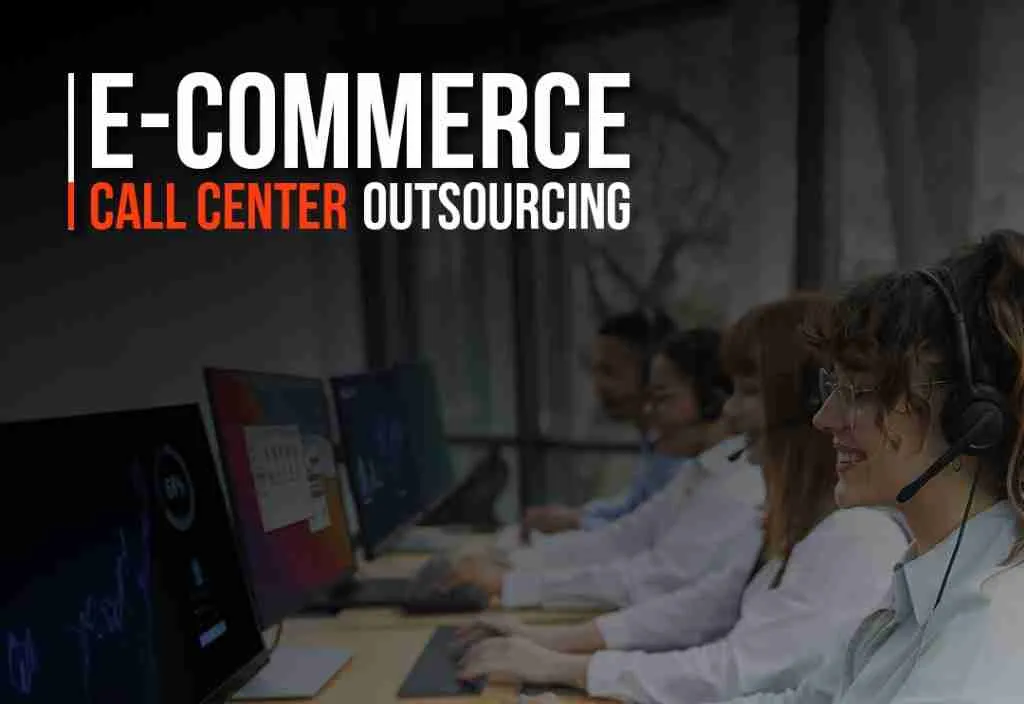Running an online business is not just about selling; it’s about managing every click and customer with a strategy.
That’s where E-commerce account management services come in. So, whether you are growing a D2C brand on Amazon, Shopify, Walmart, Target, or any other marketplace.
From listing products and optimizing storefronts to handling customer queries and analyzing performance, this process requires a well-oiled machine. And sometimes, it’s smarter (and more cost-effective) to hand over the reins.
But what exactly does an e-commerce account manager do? And is outsourcing this service the right move for your business? Let’s dig in.

What are E-commerce Account Management Services?
E-commerce account management services involve the day-to-day operations, marketing, and optimization of your brand’s online marketplace presence. It’s more than just uploading SKUs; it’s about:
- Maintaining product listings
- Handling orders and returns
- Managing inventory levels
- Monitoring ad campaigns
- Customer service
- Performance reporting & optimization
This role ensures your store does not just run, it thrives.
What Does an E-commerce Account Manager Do for the Organization?
A professional e-commerce account management team or manager is your brand’s right hand in the digital world. Some of these things they handle:
- Product Listing Optimization: They always ensure all listings are keyword optimized, visually appealing, and aligned with marketplace guidelines.
- Marketplace Compliance: Additionally, they ensure your accounts remain in good standing with platforms such as Amazon, eBay, Walmart, or Etsy.
- Ad Campaigns That Don’t Set Your Wallet on Fire: You’re not spending on ads to pray for results. A manager creates and optimizes ad campaigns that convert. No “boost post and hope” nonsense here.
- Logistics Without the Headaches: From stockouts to shipping delays, one wrong move and the review section turns into a horror show. Account managers coordinate fulfillment like pros, keeping deliveries smooth and customers happy.
- Customer Relations: Addressing queries, reviews, and returns promptly and professionally. They turn angry buyers into brand advocates, or at least stop them from torching your rating.
- Data Analysis: We all know, data is the new dollar. Numbers don’t lie. Managers track every click, conversion, and cart abandonment to tell you what’s working and what’s draining your revenue. Moreover, they also recommend strategies for growth.
Why Brands Are Outsourcing E-commerce Account Management? Benefits
You might be wondering why other brands are doing it, and how they are doing it. No worries, we got you. Running a business is tough enough. You shouldn’t also have to master Amazon SEO, run PPC campaigns, and respond to a customer asking why their package of socks hasn’t arrived in 3 hours. That’s why more brands are calling in the experts.
- More Time, Less Chaos: You’re not the CEO and the customer service rep and the PPC expert. Outsourcing lets you focus on strategy, not shipping labels. You didn’t build your empire to be buried in backend tabs.
- Expertise Without The Full-time Price Tag: Secondly, outsourcing gives you senior-level talent, minus the payroll, benefits, and HR drama. Why pay for one hire when you can have a whole team for less?
- Plug and Play Performance: Okay, forget the learning curve. The outsourced e-commerce account management team already knows your platform inside out. You had them the keys, and they drove. They don’t ask, like How does this work, They show you how it wins.
- Scale Without the Growing Pains: Do you have a holiday sale coming up? Launching a new product? Scaling your SKUs? Your outsourced team can flex with your business, no extra hires needed. In short, more volume, zero stress.
- Data-Obsessed Strategy: Every decision is backed by metrics, not “good vibes.” They’ll optimize based on real-time performance, not yesterday’s guesswork. Gut feelings are for your weekend plans, not your ad spend.
- Laser-Focused Campaign Execution: Whether it’s Amazon PPC, Walmart ads, or marketplace promos, outsourced managers know how to target, retarget, and stretch every dollar. No wasted clicks. Just ROI.
- Reliable, Pro-Level Communication: The good ones don’t ghost. You get regular reports, weekly check-ins, and updates that make sense, not “we’re working on it” emails. Because “radio silence” isn’t a growth strategy.
- Reduced Risk, Greater Control: Ironically, giving control to professionals gives you more control over results, KPIs, and outcomes. Plus, you get to hold them accountable. It’s not about giving up control; it’s about leveling up with it.
Outsourcing E-commerce Seller Account Management Services – Some Drawbacks
Let’s be real: outsourcing your e-commerce account management service sounds like a dream, and for many businesses, it is. But like any strategic move, it’s not all roses. There are real trade-offs you need to weigh before handing over your passwords and product listings.
- They’re Not You, Brand Disconnect is Real: No matter how great the agency or freelancer is, they’re still not inside your brand. They don’t eat, breathe, and dream your product the way you do.
- What this means: Your tone, your mission, your personality, it might not always shine through in listings, ads, or customer replies the way it would if you were doing it in-house. However, outsourcing gets things done. But capturing your brand’s soul? That takes extra effort.
- Time Zones Can Be Mood Killers: Many agencies operate in different time zones, and while that sounds global and cool, it can also mean delays in communication or task execution. For example, do you need a listing update ASAP before a sale? Waiting 12 hours for a reply can feel like 12 days in the e-commerce world. In short, speed sells. Delays don’t.
- Communication Gaps = Misalignment: Even with reports and check-ins, you may still feel out of the loop. Sometimes tasks are done differently than you imagined or decisions are made without context. You’ll need to overcommunicate and double-confirm expectations, especially at the start. It takes time to sync. So, if you hate repeating yourself, this one will test your patience.
- You’re Sharing Sensitive Info: Outsourcing requires access to platforms, logins, performance data, and yes, even your customer info in some cases. There’s always a risk. One wrong click, one weak password, and your account could face serious issues. Trust is essential. So is a solid NDA and an airtight security protocol.
- You May Not Be Their Only Client: Let’s be honest, most agencies juggle multiple clients. And while that’s normal, it also means you’re not always their top priority. Like, sometimes you’ll get A+ attention. Other times, you’ll feel like you’re in line behind five other brands. So, if you’re expecting “exclusive partner” treatment, choose wisely.
- You Still Need to Stay Involved: Outsourcing doesn’t mean checking out completely. You’ll still need to review performance, approve creative, give input, and provide direction. Yes, outsourcing helps, but ownership still belongs to you.
How to Professionally Outsource an E-commerce Account Management Agency (Step-by-Step)?
Outsourcing your e-commerce account isn’t just about handing over a login and hoping for the best. It’s about finding the right partner, setting clear expectations, and building a system that runs like clockwork, even when you’re not watching.
- Know What You Need (Before You Start Looking): Before you even start Googling agencies, define your actual pain points and goals. Ask yourself:
- Do I need help with product listings, ads, inventory management, or all of the above?
- Am I selling on one platform (like Amazon), or multiple (like Shopify + Walmart)?
- What’s my monthly budget for outsourcing?
- Am I looking for a long-term partner or a short-term project-based solution?
Clarity is power. Don’t go shopping for solutions until you know the problem.
- Research & Shortlist Like a Boss: Now that you know what you’re looking for, go find it. What to look for in an agency:
- Experience with your specific platform(s)
- Case studies and proven results
- Industry-relevant testimonials
- Transparent pricing and scope
- Knowledge of marketplace policies
Use platforms like Clutch, LinkedIn, or even e-commerce Facebook groups. Or better yet, ask for referrals from other business owners in your network. If their website screams “we manage everything!” but can’t show proof, run.
- Audit Their Work, Not Just Their Pitch: Don’t just fall for flashy proposals. Ask for:
- Actual client work samples
- A breakdown of their strategy process
- The tools and dashboards they use
- Access to sample reports or analytics templates
And here’s the big one: Set up a discovery call to feel them out. Are they just telling you what you want to hear, or offering real solutions based on what you told them? If their answers are vague, their service probably will be too.
- Define Scope, Deliverables & KPIs Clearly: This is the part many brands skip, and regret later. Work with the agency to define:
- Which tasks they’re responsible for (and which ones you’re not handing off)
- How often they’ll report results (weekly, bi-weekly, monthly)
- What performance metrics matter most (sales, CTR, ROAS, etc.)
- Turnaround time for tasks and issue resolution
- Communication channels (Slack? Email? Zoom?)
Then, put all of this into a detailed contract. A great partnership starts with zero confusion.
- Set Up Access Safely & Smartly: Never just send them your master passwords. Use:
- Amazon Seller Central roles
- Shopify collaborator access
- Password managers (like LastPass or 1Password)
- Custom analytics dashboards to limit visibility if needed
Protect your brand by sharing only what’s necessary and keeping logs of who has access to what. Trust, but don’t get reckless with your login.
- Start with a Trial Period: Always begin with a 30–60 day trial phase before locking into a long-term contract. Use this time to:
- Test their communication and response times
- Measure initial results and strategy alignment
- Evaluate their flexibility and proactivity
If they deliver, you know you’ve got a keeper. If not, you can pivot without a messy breakup. It’s not dating, but it’s a commitment; don’t rush it.
- Review, Optimize, Repeat: Even once you’ve outsourced, your job isn’t over. You should:
- Review monthly reports closely
- Ask questions (even the “dumb” ones)
- Suggest strategy tweaks as you get new data
- Keep business goals front and center
Remember, your outsourced team doesn’t read your mind. Keep the loop open and performance-focused. Good management = good results. Even when it’s not you doing the work.
Conclusion
E-commerce isn’t a side hustle anymore; it’s a full-blown operation. And if you are trying to wear all the hats, you’re not just exhausting yourself; you are limiting your brand’s potential.
Hence, outsourcing your e-commerce account management service is more than a time-saver; it’s a growth strategy. From streamlining operations to marketplace domination, the right agency becomes your backstage partner.
Define your goals. Choose a team that gets your brand. Stay involves. Because success in e-commerce isn’t about doing everything, it’s about doing the right things, with the right people.
Now, schedule a free consultation call with Outsourcing Buddy experts, and let your brand shine.
Top 5 Frequently Asked Questions (FAQs)
Question: What platforms do e-commerce account management agencies usually support?
Answer: Most agencies specialize in major platforms like Amazon, Walmart, Shopify, eBay, and Etsy. Some even cover niche or regional marketplaces, depending on your product and audience.
Question: Can I outsource just part of the account management, like only ads or listings?
Answer: Absolutely. Many businesses choose to outsource specific services such as ad management, listing optimization, or customer service — rather than handing off the entire account.
Question: How long does it take to see results after outsourcing?
Answer: Typically, you’ll start seeing improvements in account performance within the first 30–60 days, depending on your starting point, ad budget, and how much needs fixing or optimizing.
Question: What should I include in the onboarding process with an agency?
Answer: At minimum: brand guidelines, platform access (via secure methods), goals, key performance indicators (KPIs), past performance data, and a clear communication plan.
Question: How do I measure the success of an outsourced e-commerce seller account management team?
Answer: Track metrics like order volume, conversion rate, ROAS, account health, listing quality, and customer reviews. Consistent reporting and data transparency are key to staying aligned.


